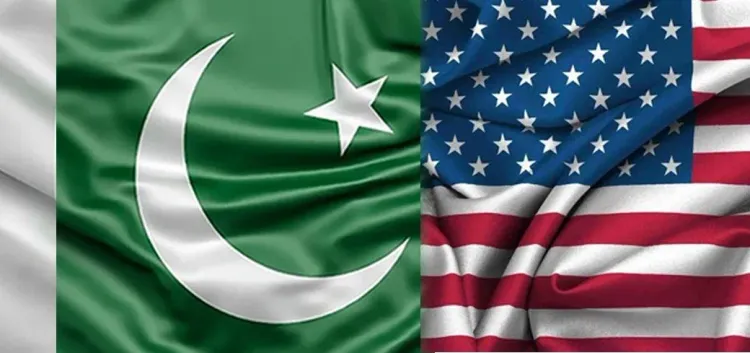Why is Pakistan Turning to the US After Being Let Down by Chinese Arms?

Synopsis
Key Takeaways
- Pakistan's debt to China is USD 29 billion.
- Seeking IMF assistance indicates financial distress.
- High power tariffs from CPEC projects affect citizens.
- Chinese weapon systems have underperformed in conflicts.
- Growing US-Pakistan relations may alarm China.
Islamabad, Sep 3 (NationPress) The underlying motive behind Pakistan's attempts to strengthen ties with the United States appears to be financial aid and military equipment, as a recent report reveals that it has been notably abandoned by China.
According to a Maldives Insight report, Pakistan has come to the realization that China is taking advantage of it through the China Pakistan Economic Corridor (CPEC) initiative, while providing them with weapon systems of dubious reliability.
"With the CPEC, Pakistan has accrued significant debt to Beijing, leaving Islamabad with no choice but to seek assistance from the International Monetary Fund, which is largely influenced by Washington, for bailout packages to manage its debt repayments. In 2024, China emerged as Pakistan's largest bilateral creditor, with Islamabad's debt to Beijing standing at USD 29 billion. The World Bank's International Debt report for 2024 indicated Pakistan's total external debt at USD 130 billion," the report stated.
In 2024, Pakistan ranked among the top three countries receiving loans from the IMF. The IMF has formulated a USD 7 billion bailout package for Pakistan, with an initial USD 1 billion approved for disbursement on May 9 under the Extended Fund Facility.
However, the report pointed out that the citizens of Pakistan have not reaped benefits from CPEC projects, as electricity tariffs remain excessively high due to Chinese firms charging for even unused power plant capacity. Additionally, local fishermen have lost access to their fishing grounds at Gwadar Port. The Baloch Liberation Army (BLA) has also intensified its actions against Chinese nationals in Pakistan, protesting against the exploitation of Balochistan's resources with the support of the Pakistani government.
The report mentioned that during his first term, former US President Donald Trump halted military aid to Pakistan, citing its failure to take action against the Afghan Taliban and the Haqqani Network, which were operating from within its borders. This has led to an increased reliance on China for military supplies.
"In Pakistan's recent brief conflict with India, Chinese weapon systems such as the HQ-9 and HQ-16 Surface-to-Air Missiles and J-10C and JF-17 fighter jets failed to prevent Indian strikes on terrorist camps and strategic airfields within Pakistan, nor did they significantly damage Indian targets. This has put Islamabad under pressure to seek reliable weapon systems from the US once more," the report titled 'Beijing Alarmed Over Strengthening US–Pakistan Relations' elaborated.
Furthermore, it indicated that Beijing is closely monitoring Islamabad's burgeoning relationship with Washington, fearing it could jeopardize their traditionally strong ties. Following a visit to New Delhi last month, Chinese Foreign Minister Wang Yi quickly traveled to Islamabad for the Pakistan-China Strategic Dialogue to assess their enduring partnership.
"Based on past experiences, Beijing cannot afford to let this relationship flourish. The US is particularly concerned about the Chinese military presence at Gwadar Port. Under pressure from Washington, Islamabad refrained from allowing the Chinese Navy to dock at Gwadar during the joint naval Sea Guardians III exercise in November 2023. Establishing a military base at Gwadar to extend its influence in the Indian Ocean region remains Beijing's ultimate goal via CPEC," it added.









